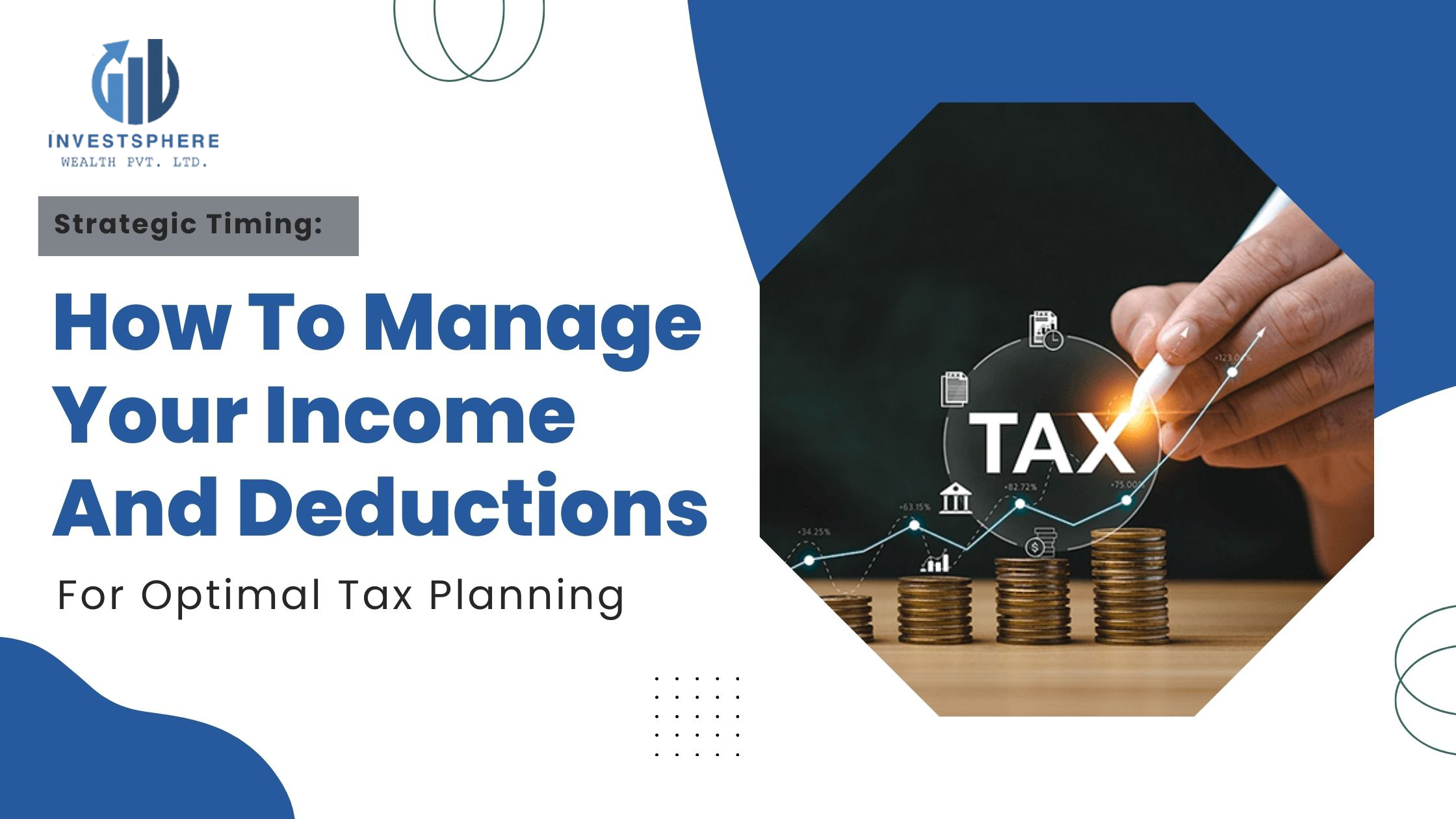Tax planning is crucial for managing your money effectively. It is organising your financial affairs to minimise your tax liabilities and maximise your financial efficiency. It requires making informed decisions and taking advantage of available tax benefits and deductions while adhering to existing tax rules and regulations. Tax planning maximises your after-tax income, reduces the amount of taxes you owe legally, and ensures compliance with all applicable tax rules. By carefully managing your income and deductions, you may reduce your tax liability and save more money. This blog will look at essential strategies for optimising your tax planning by effectively managing income and deductions.
Understand your income
Before getting into tax planning, you need to have a thorough understanding of your income sources. It includes your salary, bonuses, freelancing or side gig income, investment returns, and any other sources of revenue. Categorise these sources to get insight into the many streams contributing to your overall income.
Leverage Tax-Advantaged Accounts
Use tax-advantaged funds like 401(k), IRAs, and Health Savings Funds (HSAs). Contributions to these accounts are generally tax deductible, lowering your taxable income. Additionally, gains in these accounts grow tax-deferred, allowing your investments to compound over time.
Plan your deductions
Identify potential deductions and strategize how to maximise their benefits. Mortgage interest, student loan interest, medical expenses and charitable contributions are some tax deductions. Keep detailed documents and receipts to support your deductions when submitting your taxes.
Stay Informed About Tax Credits
Tax credits lower your tax liability, making them useful for tax planning. Be aware of various tax credits, including the Child Tax Credit, Earned Income Tax Credit, and education-related benefits. These can drastically reduce your tax payment, resulting in more spare cash.
Time Your Income and Expenses
To optimise your tax status, consider when your income and deductible expenses occur. For example, if you anticipate a larger income in a specific year, you may defer some income or accelerate deductible expenses to offset the increased revenue.
Invest Wisely
Understanding the tax implications of your investments is critical to efficient tax planning. Tax planning depends on the type of investment you make. For example, long-term capital gains are frequently taxed at a lower rate than ordinary income. Investigate tax-efficient investment options to increase returns while reducing tax payments.
Seek Professional Advice
Tax rules are complex and can change. Consulting with a tax specialist or financial expert, such as Investsphere Wealth, can provide tailored advice based on your unique financial situation. Professionals can assist you in navigating tax rules, identifying potential for savings, ensuring compliance with current standards and providing solutions.
Conclusion
Effective tax planning demands a proactive approach to controlling your income and deductions. You can drastically minimise your tax bill by knowing your financial situation, using tax-advantaged accounts, maximising deductions, and maintaining current tax credits. Remember to be organised, plan intelligently, and seek professional assistance to use your financial resources effectively. Investsphere Wealth Pvt Ltd is a one-stop destination for your financial requirements. We provide. We provide reliable, efficient and responsible financial products and services, including tax planning, to our clients. With experience and expertise, we help you lower your tax liability and increase your financial efficiency.





